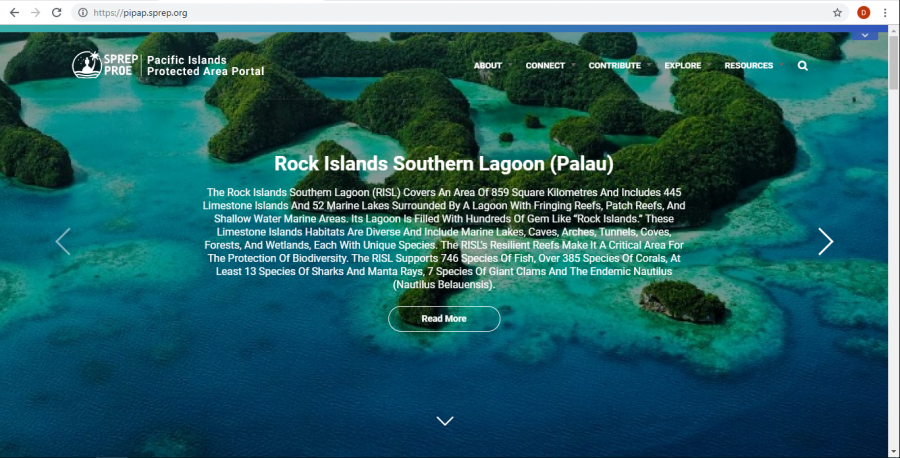
Strengthening partnerships for the environment to help Pacific island countries better manage their natural resources is the goal of a close collaboration between two SPREP projects - the regional Inform data management project and BIOPAMA. The goal of the partnership is to help Pacific island countries better report on, and understand the status of protected areas, conservation and the environment in their respective jurisdictions.
The partnership is helping reduce redundancy and increase benefits to Pacific island countries from the two complementary SPREP environment projects.
BIOPAMA aims to improve the long-term conservation and sustainable use of biodiversity and natural resources in protected areas and surrounding communities through better use and monitoring of information and capacity development on management and governance. This is an initiative of the ACP Group of States financed by the European Union’s 11th European Development Fund, In the Pacific, BIOPAMA is implemented by IUCN in partnership with the Joint Research Centre of the European Commission (EC-JRC) and SPREP. The programme supports the 15 ACP countries in the region, which have more than 580 protected areas, as well as numerous locally managed, community conserved and sustainable use areas.
The Pacific Islands Protected Area Portal, supported by BIOPAMA is a platform to share knowledge and expertise on Pacific islands protected areas, which include locally managed areas affording some level of protection of natural resources.
Mr. Paul van Nimwegen of IUCN said, “I’m really glad that the Inform project and BIOPAMA are genuinely collaborating. Our collective efforts will provide benefits and reduce complexity for SPREP members and BIOPAMA target countries.”
The Inform project has developed national reporting tools and national data portals in 14 Pacific island countries and territories. The project is funded by the Global Environment Facility (GEF) through UN Environment Programme (UNEP), and executed by SPREP’s Environmental Monitoring and Governance Programme.
The Inform project and BIOPAMA together with EC-JRC technical support are developing intuitive visualisation tools to make maps and do spatial queries for the national portals.
“Combining these two different platforms will bring benefits to countries with improved ability to store, visualise and report on the condition of the environment and track their progress against multilateral environment agreements (MEAs) like the Aichi Biodiversity Targets of the Convention on Biodiversity (CBD), and Sustainable Development Goals (SDGs) around to marine protected areas,” said Mr. Paul Anderson, Inform Project Manager.
There are three areas of specific collaboration between JRC-EC, IUCN, and SPREP through the Inform and BIOPAMA projects. The first area is a shared library of reporting or policy requirements and indicators. Linking these allows governments to effectively and efficiently measure and report on targets associated with MEAs and national strategies.
The second area of collaboration is the sharing, storing and use of country data for improved visualisation. Information on the regional portal (https://pacific-data.sprep.org/) will be linked with the BIOPAMA Regional Information System, allowing countries to leverage their data to get more interesting insights, visualisations and analysis. Visit the web-based information system for protected areas covering the 79 ACP countries: https://rris.biopama.org/
Thirdly, BIOPAMA and the Inform project will continue to build capacity in-country on a simple unified solution, increased interoperability and streamlined user experience. The two projects are working together on a reporting tool to achieve that unified solution to better report on Pacific environments.
For more information on the Inform Project, contact Mr. Paul Anderson, Inform Project Manager on email: [email protected].
For more information on BIOPAMA, contact Mr. Vainuupo Jungblut, Protected Areas Officer on email: [email protected].
To learn more about the Inform project, please visit http://www.sprep.org/inform/home
To learn more about the BIOPAMA project, please visit https://www.biopama.org